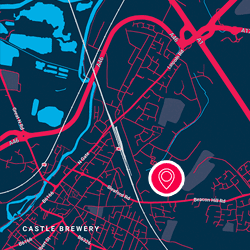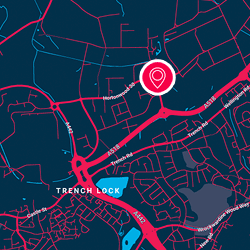BLOG
Business Continuity Planning & Disaster Recovery, what’s the difference?
We’re often asked, what is the difference between disaster recovery and business continuity?
Business continuity planning (BCP) is about building a strategy to ensure continuity of operations with minimal downtime during and after disaster strikes or you experience extended service disruption. Disaster recovery (DR) is about making sure you have back-up connectivity and the ability to restore data and critical applications as quickly as possible, should something unexpected happen, like a digger ploughing into your building! They are closely related, and both are critical to consider when reviewing how you effectively maintain business operations, should the worst happen.

The need for business continuity planning, and disaster recovery is ever increasing. Whether you are affected by natural disasters, malicious cyber-attacks or a worldwide pandemic, organisations need to remain running. But how would your business respond to this should the worst happen?
In recent years, large scale BCP plans have included emergency strategies written, but very rarely implemented. In today’s world, it needs to cover the worst-case scenario including high levels of sickness or absence; increase in demand for connectivity bandwidth, call diverting and enabling 80% or more of the workforce to work remotely and collaboratively – none of which could be possible without modern technology.

BCP isn’t just about having additional hardware to allow this to take place as laptops alone aren’t going to keep employees working effectively; it’s the backbone technology which is the difference between a successful BCP and a business grinding to a halt after disaster strikes. Email and voice are often thought of as the only applications needed when ‘working remotely’ but that isn’t the case for most businesses. HR teams will need to continue having access to applications such as Oracle or SAP, Customer Services need to continue to serve customers via CRMs, IVRs and call routing, and engineers or staff in the field need access to ITSM applications specific to their job role.
Cloud technology has become a game changer with its agility, ease of access, cost effective approach and rapid deployment. Easier than ever before we can build cloud enabled business, giving employees exceptional functionality at home, as they would experience if they were within the office. Software as a Service solutions such as Microsoft Office 365 and Teams is testament to that, where just connection to the internet means that many can continue business as usual.

Security standards can still be maintained by deploying solutions ideal for multi-cloud businesses that provide coverage on those SaaS platforms, whilst VPNs can deliver applications to those who have private and on-premise requirements such as Oracle or other billing systems. The additional bandwidth to support all of these changes can be managed and throttled accordingly, eradicating the need for time consuming digs and new provisions.

Staff engagement during these periods is also important, as isolation can have negative effects on both mental health and productivity. It’s important to include considerations to address these areas in your BCP, using collaboration tools such a video conferencing and group chats and suddenly being at home is like being in the office with teams staying in touch.
Digital transformation is not only about what your business needs today, but also planning for the future, whatever that may be. We’re proud to be able to help businesses in times like these, working with our specialists to develop effective BCPs or to enable delivery through cloud technologies and reliable, fast and secure connectivity solutions.

Timico
We deliver Connectivity, UC&C, Cloud & Hosting, Security and IT Managed Service Solutions to our customers, through Service Operations based in Newark, Winnersh, Telford and London.










